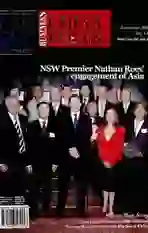Foreign Retailers Depressed in South China
2009-01-27


The international retail giants are facing a depressed market in the southern part of China. How to get rid of the adverse situation is the primary consideration of these foreign retailers which used to be quite prosperous in South China.
One of the three international retail giants Carrefour was reported by the foreign media that it will withdraw from the Chinese market. Though Carrefour immediately denied these words, it is true that the international retail giants are hard to be prosperous in China like before.
Take Carrefour for example. It entered the Chinese market in 1995 and always exceeded the other international retail companies in the speed of opening new stores as well as the business performance. However, from this year, Carrefours development pace was greatly eased. From last December to this September, it only opened seven new storefronts in China. Carrefours disadvantages are easier to be seen in South China. In Guangzhou, Guangdong, Carrefour has 5 stores, none of which was opened in these two years.
What has seen decrease was not only the development pace. Carrefours leading place in the average sales amount of a single store in China was also taken by RT-Mart from Taiwan. According to the statistical data, in 2008, the average sales amount of a single Carrefour store in China was 252 million yuan (USD 36.91 million), while RT-Marts was 333 million yuan (USD 48.78 million).
Disadvantages of Foreign Retailers in South China
Wal-Mart, another member of the three international retail giants took on a different development trend from Carrefour. Its development has been obviously accelerated in this year. The number of new stores in this year has reached 30. However, its plan to purchase Trust-Mart will dilute the whole profit level.
The last giant TESCO entered in China in 2004. Its development pace was not fast enough. In 2008, it was not even a member of the Top 10 retailers in China.
Huang Wenjie, general manager of Guangzhou Clear & Clever Commercial Co., Ltd., pointed out that the status quo of the three international retail giants is not the same with their global rankings. In South China, the three giants are in a more adverse situation compared with the other parts of China, because there are some powerful competitors from Mainland China, Hong Kong and Taiwan. Only Wal-Mart have better performance in Shenzhen, Guangdong, where the Wal-Mart China is headquartered.
Analysis of the Reasons
The experts attributed the slow pace of the international retailers in opening new stores and their dissatisfactory business performance and profit level to the following four factors:
Firstly, the foreign retailers have to face the invisible threshold in their development in China. According to the source, the local governments of different places welcome the entry of the foreign retailers, but some foreign retailers set up an independent company in the central city of an area and then set up the branch companies in the other cities of this area. That means a part of the tax revenue generated in the other cities will be turned in to the city where the company was headquartered. Many local governments dont like this kind of companies.
Secondly, many foreign retailers can not find proper property management companies for their stores. A source from the headquarters of Carrefour in South China said: “Its not true that we dont want to open the new stores. The real reason is that there are too few existing stores.”
Thirdly, the foreign retailers usually have strict policies for the suppliers. For example, a supplier signing a one-year contract with TESCO or Carrefour, allowing the supplier to conduct six times of sales-promotion activities in the stores. But if the supplier can not hold six times of sales-promotion activities as contracted, the foreign retailers will deduct the money without any opportunities for negotiations. In one word, to cooperate with Carrefour, Wal-Mart and TESCO in China, the comparison between the income and expenditure for the suppliers is not very satisfactory.
Fourthly, the foreign retailers neglect the pattern of opening stores in or near the residential areas. Many citizens in South China said that the shopping malls of Wal-Mart, Carrefour and TESCO are far way from where they live, making them not list them as the first places to go shopping.
